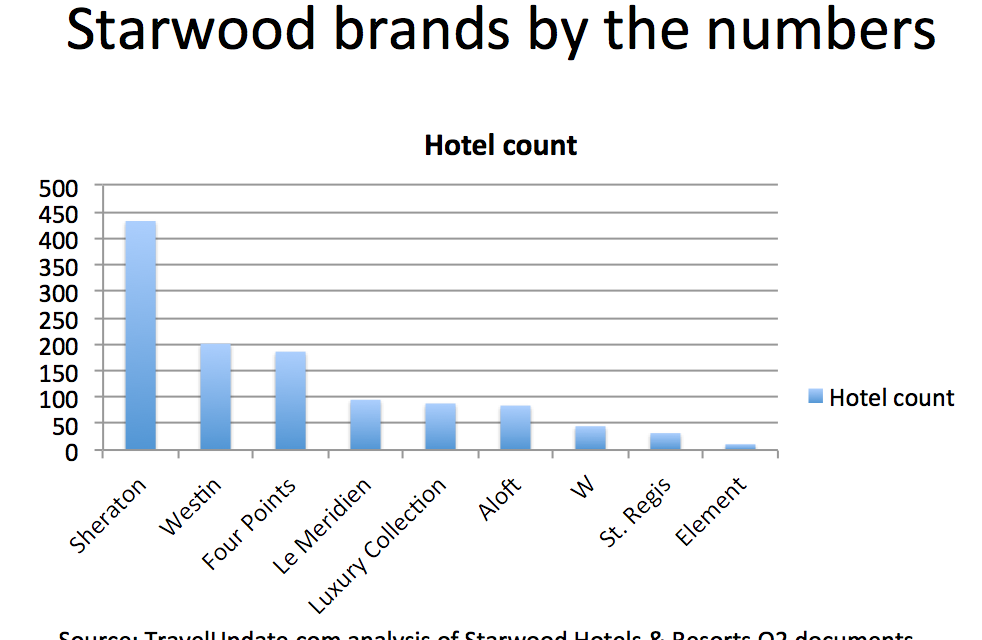REMINDER: Enter my GIVEAWAY before it’s too late!! >>> HERE <<<
SPG 50% Off Certificate + Chili’s Gift Card! | #travelblawgGiveaway
~
The U.S. Supreme Court receives approximately 10,000 cases each year in the form of a “Petition for a Writ of Certiorari” of which the Court grants and hears oral argument in only about 75-80 cases (<1%). This year, the Court has agreed to hear (i.e. granted certiorari to review) two (!) lower court decisions that have a direct relationship to the travel industry, specifically airline companies:
- Air Wisconsin Corp. v. Hoeper, No. 12-315 – A defamation case involving vague and contradicting facts concerning a “soon-to-be-fired” pilot, the reports surrounding his potential security risk, and the application of the immunity provision in the Aviation and Transportation Security Act (ATSA). I wrote a previous blog about this case which I invite you to read here: “Airline’s ‘False Alarm’ Security Case Goes to U.S. Supreme Court“
- Northwest Airlines, Inc. v. Ginsberg, No. 12-462 – A breach of contract case involving a frequent flyer member who was unilaterally removed from Northwest’s program at its sole discretion and the potential application of the Airline Deregulation Act (ADA) to preempt such claims.
Both cases will be argued during the October 2013 Term, with decisions expected in 2014.
As I already blogged about Mr. Hoeper’s case against his former employer, Air Wisconsin, here, this posting will focus on the second case of Rabbi S. Binyomin Ginsberg and his removal from Northwest’s WorldPerks frequent flyer program.
“Button it up, pal. Nobody likes a whiner!” (Bill Murray, Quick Change, 1990)
Rabbi S. Binyomin Ginsberg became a member of the Northwest Airlines (now merged with Delta) frequent flyer program “WorldPerks” in 1999 and obtained Premium Elite Status in 2005. According to court filings, he is an expert in education and administration who travels extensively throughout the United States and abroad to give lectures, workshops, and seminars. He and his wife traveled almost exclusively on NWA for approximately 75 flights per year.
In 2008, his membership was terminated, as per the terms of the program that allowed Northwest Airlines sole and unilateral discretion to remove WorldPerks program participants. Ginsberg attempted several times to clarify the reasons behind NWA’s decision to revoke his membership. Ginsberg alleges that NWA revoked his membership arbitrarily because he complained too frequently about the services. Other reasons he cited for his revocation was allegedly booking reservations on full flights with the purpose of being bumped, and being bumped from flights too often.
Northwest communications with Ginsberg explained the basis for its decision, quoting from the General Terms and Conditions of the WorldPerks Program, which provides that Northwest may determine “in its sole judgment” whether a passenger has abused the program, and that abuse “may result in cancellation of the member’s account and future disqualification from program participation, forfeiture of all mileage accrued and cancellation of previously issued but unused awards.” Furthermore, NWA stated it would no longer be providing him compensation every time he contacted the airline.
In January 2009, Ginsberg sued NWA and argued that, by terminating his membership in the frequent flyer program, the company breached both the contractual agreement and the implied doctrine of good faith and fair dealing under Minnesota law.
Before any trial at the federal district court level, the defense argued that Ginsberg’s claims were preempted by the Airline Deregulation Act of 1978 (ADA), 49 U.S.C. § 41713(b)(1), which prohibits states from enacting or enforcing regulation over the price, route, or service of an air carrier. The district court found in favor of Northwest Airlines, (dismissing that claim pursuant to Fed.R.Civ.P. 12(b)(6)), whereas the Ninth Circuit disagreed and reversed.
The [yawn] Legal Issues
Without going too in-depth in the ADA, it’s important to understand, at least for this case, that Congress implemented the federal law after determining that laws at the time, governed state-by-state, were inefficient and impractical in relation to the airline industry; whereas federal deregulation, along with market forces, could better promote efficiency, variety, and quality in the airline industry. Therefore, Congress included a preemption clause preventing states from enacting or enforcing any “law, regulation, or other provision having the force and effect of law related to a price, route, or service of an air carrier that may provide air transportation.”
While the facts of Rabbi Ginsberg’s case are interesting, the sole issue before the top Court of the land is not to decide if he has a valid claim due to the facts, or what his appropriate damages should be, rather it is to determine if he even has a case at law from the start. The U.S. Court of Appeals for the Ninth Circuit held that his claim for breach of the implied covenant of good faith and fair dealing (while that is a legal phrase, it means what it sounds like) is a common law contract claim that is not preempted (i.e. stopped, halted, dismissed, killed) by the ADA.
Ginsberg sued on a variety of claims, as is common with such litigation, including negligent and intentional misrepresentation, breach of contract and breach of the implied covenant of good faith and fair dealing for his removal from the WorldPerks program. Northwest first moved to dismiss the misrepresentation and implied covenant claims as preempted by the ADA and the first court agreed. However, the Ninth Circuit reversed this preemption “protection” for Northwest.
The Ninth Circuit explained that such a cause of action was part of a state’s contract laws and not in contrast to, or closely related to, the deregulatory purpose of the ADA. However, this Ninth Circuit decision is arguably in conflict with a broader interpretation of the ADA’s application to prices, routes, or services of an air carrier.
Takeaway
Sorry if you wanted a passionate hearing or trial based and juicy testimony involving a frequent flyer and his (lost) status. Most every case at the appellate level involves far more “boring” issues of law rather than of fact. That’s just the case here, as the U.S. Supreme Court will not decide Rabbi’s Ginsberg’s claims themselves, but whether the Ninth Circuit erred in reversing the district court by holding that the implied covenant of good faith and fair dealing was not preempted under the ADA because such claims because the claims were unrelated to the price, route, or services of the air carrier.
You’ll have to wait until the case is remanded back to the Minnesota federal district court for an actual trial… unless the matter settles beforehand (Delta status for the Rabbi!?).
Follow Me!
Twitter: @travelblawg
Facebook: facebook.com/travelblawg





[…] Today, the U.S. Supreme Court issued its Opinion in Northwest Airlines, Inc. v. Ginsberg – A breach of contract case involving a frequent flyer member who was unilaterally removed from Northwest’s program at its sole discretion and the potential application of the Airline Deregulation Act (ADA) to preempt such claims. [Prior travelblawg post here.] […]
[…] Northwest Airlines, Inc. v. Ginsberg, No. 12-462 – A breach of contract case involving a frequent flyer member who was unilaterally removed from Northwest’s program at its sole discretion and the potential application of the Airline Deregulation Act (ADA) to preempt such claims. [Prior travelblawg post here.] […]